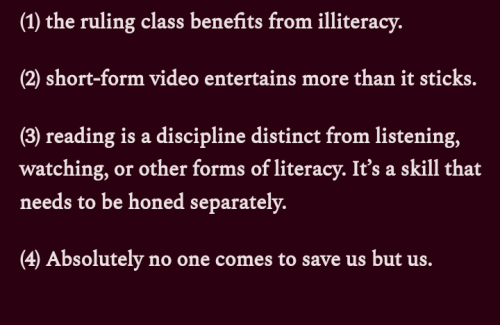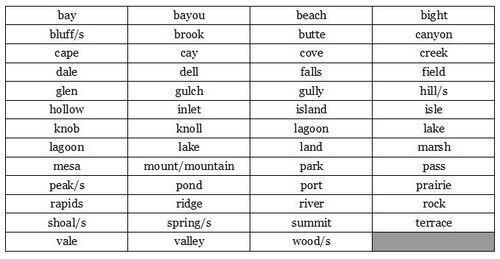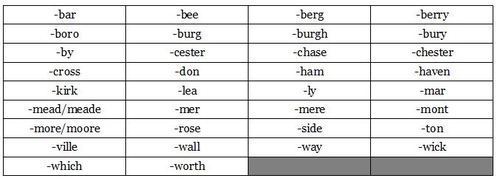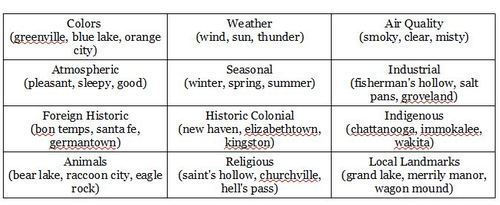"Absolutely No One Comes To Save Us But Us."

"Absolutely no one comes to save us but us."
Ismatu Gwendolyn, "you've been traumatized into hating reading (and it makes you easier to oppress)", from Threadings, on Substack [ID'd]
More Posts from Sparklingsilvermagnolias and Others
GUIDE: NAMING A TOWN OR CITY
This post was originally from a FAQ, but since the original link is now defunct, I am re-posting it here.
There are many things to keep in mind when naming the town or city in your novel:
1) Genre/Theme/Tone
It’s very important to consider the genre and theme of your story when choosing a town name. Take these names for example, each of which indicates the genre or theme of the story: King’s Landing (sounds fantastical) Cloud City (sounds futuristic) Silent Hill (sounds scary) Sweet Valley (sounds happy and upbeat) Bikini Bottom (sounds funny) Radiator Springs (sounds car-related) Halloween Town (sounds Halloween-related) Storybrooke (sounds fairytale-related) 2) Time/Place It’s also important to consider the time and place where your story takes place. For example, you wouldn’t use “Vista Gulch” as a name for a town in Victorian England. You probably wouldn’t use it for a town in modern day North Carolina, either. Vista is a Spanish word and would normally be found in places where Spanish names are common, like Spain, Central and South America, the southwest United States (including southern California), Cuba, Puerto Rico, Dominican Republic, and Florida. 3) Size/Settlement Type An isolated town of 300 people probably won’t be Valley City, but a sprawling metropolis of 30 million could be called Windyville, because it could have started out as a small town and grew into a large city. 4) Geography Words like gulch, butte,and bayou tend to be regional terms. You probably wouldn’t find Berle’s Bayou in Idaho, or Windy Butte in Rhode Island. Words like mount, cape, and valley are dependent upon terrain. Most of the time, you won’t have a town named “mount” something unless there are hills or mountains nearby. You wouldn’t use “cape” unless the town was on a cape, which requires a large body of water. 5) History Is there a historical person or event that your town might be named after? The Simpsons’ hometown of Springfield is ironically named after its founder, Jebediah Springfield. Chattanooga, Tennessee is named after the Cherokee town that was there first. Nargothrond, in The Lord of the Rings, is an Elvish town with an Elvish name. 6) Combination of Words
person name + geographical term = Smithfield, Smith Creek
group name + geographical term = Pioneer Valley, Settlers’ Ridge
descriptive word + geographical term = Mystic Falls, Smoky Hill
person name + settlement type = Smithton, Claraville
landmark + settlement type = Bridgton, Beaconville
Word Lists
Types of Settlements

Geographical Features

Place Words

Common Suffixes

Other Descriptors

Symbolism in Writing
Weather Symbolism
Rain: cleansing, sadness, renewal, obstacles
Sunshine: happiness, hope, clarity, energy
Storms: conflict, turmoil, dramatic change
Snow: purity, stillness, coldness, isolation
Fog: confusion, mystery, uncertainty
Wind: change, freedom, unrest, communication
Animal Symbolism
Eagle: freedom, vision, strength, courage
Lion: bravery, power, leadership, pride
Dove: peace, love, innocence, spirituality
Wolf: loyalty, cunning, survival, community
Snake: transformation, danger, temptation, wisdom
Butterfly: transformation, beauty, impermanence
Plant Symbolism
Rose: love, beauty, passion, secrecy
Oak Tree: strength, endurance, wisdom
Willow Tree: sadness, flexibility, resilience
Lotus Flower: purity, enlightenment, rebirth
Ivy: friendship, fidelity, eternity
Cactus: endurance, protection, warmth
Object Symbolism
Mirror: self-reflection, truth, illusion
Key: opportunity, secrets, freedom
Bridge: connection, transition, overcoming obstacles
Candle: hope, spirituality, life, guidance
Clock: time, mortality, urgency
Mask: disguise, deception, concealment
Number Symbolism
One: beginnings, unity, individuality
Two: partnership, balance, duality
Three: creativity, growth, completeness
Four: stability, order, foundation
Five: change, adventure, unpredictability
Seven: mystery, spirituality, luck
Season Symbolism
Spring: renewal, birth, growth, hope
Summer: vitality, abundance, joy, freedom
Autumn: change, maturity, decline, reflection
Winter: death, stillness, introspection, endurance
Light and Darkness Symbolism
Light: knowledge, purity, safety, enlightenment
Darkness: ignorance, evil, mystery, fear
Shadow: the unconscious, secrets, mystery
Twilight: ambiguity, transition, mystery
Element Symbolism
Fire: passion, destruction, energy, transformation
Water: emotion, intuition, life, change
Earth: stability, grounding, fertility, growth
Air: intellect, communication, freedom, change
Small fantasy worldbuilding elements you might want to think about:
A currency that isn’t gold-standard/having gold be as valuable as tin
A currency that runs entirely on a perishable resource, like cocoa beans
A clock that isn’t 24-hours
More or less than four seasons/seasons other than the ones we know
Fantastical weather patterns like irregular cloud formations, iridescent rain
Multiple moons/no moon
Planetary rings
A northern lights effect, but near the equator
Roads that aren’t brown or grey/black, like San Juan’s blue bricks
Jewelry beyond precious gems and metals
Marriage signifiers other than wedding bands
The husband taking the wife's name / newlyweds inventing a new surname upon marriage
No concept of virginity or bastardry
More than 2 genders/no concept of gender
Monotheism, but not creationism
Gods that don’t look like people
Domesticated pets that aren’t re-skinned dogs and cats
Some normalized supernatural element that has nothing to do with the plot
Magical communication that isn’t Fantasy Zoom
“Books” that aren’t bound or scrolls
A nonverbal means of communicating, like sign language
A race of people who are obligate carnivores/ vegetarians/ vegans/ pescatarians (not religious, biological imperative)
I’ve done about half of these myself in one WIP or another and a little detail here or there goes a long way in reminding the audience that this isn’t Kansas anymore.
Tips from a Beta Reading Writer
This one's for the scenes with multiple characters, and you're not sure how to keep everyone involved.
Writing group scenes is chaos. Someone’s talking, someone’s interrupting, someone’s zoning out thinking about breadsticks. And if you’re not careful, half your cast fades into the background like NPCs in a video game. I used to struggle with this so much—my characters would just exist in the scene without actually affecting it. But here’s what I've learned and have started implementing:
✨ Give everyone a job in the scene ✨
Not their literal job—like, not everyone needs to be solving a crime or casting spells. I mean: Why are they in this moment? What’s their role in the conversation?
My favourite examples are:
The Driver: Moves the convo forward. They have an agenda, they’re pushing the action.
The Instigator: Pokes the bear. Asks the messy questions. Stirring the pot like a chef on a mission.
The Voice of Reason: "Guys, maybe we don’t commit arson today?"
The Distracted One: Completely in their own world. Tuning out, doodling on a napkin, thinking about their ex.
The Observer: Not saying much, but noticing everything. (Quiet characters still have presence!)
The Wild Card: Who knows what they’ll do? Certainly not them. Probably about to make things worse.
If a character has no function, they’ll disappear. Give them something—even if it’s just a side comment, a reaction, or stealing fries off someone’s plate. Keep them interesting, and your readers will stay interested too.
Emotional Confession Scene Prompts
♡ Voice trembling on the edge of something bigger.
♡ A truth blurted out mid-argument, raw and unpolished.
♡ Avoiding eye contact, but finally saying it anyway.
♡ A confession disguised as a joke.
♡ “I wasn’t going to say anything but...”
♡ Whispered during a moment when they think the other person is asleep.
♡ A tearful outburst after staying calm for far too long.
♡ “You weren’t supposed to find out like this.”
♡ Telling the truth while staring at the ground.
♡ Letting it slip accidentally, then freezing.
♡ Writing it down instead of saying it.
♡ Starting a sentence three times before finishing it.
♡ “I didn’t know how to say it until now.”
♡ Sending a message, deleting it, sending it again.
♡ “You asked how I’m doing. I lied.”
♡ Finally saying what’s been obvious to everyone else.
♡ Speaking in metaphors because the truth feels too vulnerable.
♡ Telling someone else first.
♡ Breaking down halfway through the sentence.
♡ “I’m scared you’ll hate me if I tell you.”
Overused Words in Writing & How to Avoid Them
We’ve all got our comfort words—those trusty adjectives, verbs, or phrases we lean on like a crutch. But when certain words show up too often, they lose their impact, leaving your writing feeling repetitive or uninspired.
1. “Very” and Its Cousins
Why It’s Overused: It’s easy to tack on “very” for emphasis, but it’s vague and doesn’t pull its weight.
Instead of: “She was very tired.” Try: “She was exhausted.” / “She dragged her feet like lead weights.”
💡 Tip: Use precise, vivid descriptions rather than vague intensifiers.
2. “Looked” and “Saw”
Why It’s Overused: It’s functional but flat, and it often tells instead of shows.
Instead of: “He looked at her in disbelief.” Try: “His eyebrows shot up, his lips parting as if words had failed him.”
💡 Tip: Focus on body language or sensory details instead of relying on generic verbs.
3. “Suddenly”
Why It’s Overused: It’s often used to create surprise, but it tells readers how to feel instead of letting the scene deliver the shock.
Instead of: “Suddenly, the door slammed shut.” Try: “The door slammed shut, the sound ricocheting through the empty room.”
💡 Tip: Let the action or pacing create urgency without needing to announce it.
4. “Said” (When Overdone or Misused)
Why It’s Overused: While “said” is often invisible and functional, using it in every dialogue tag can feel robotic.
Instead of: “I can’t believe it,” she said. “Me neither,” he said. Try: Replace with an action: “I can’t believe it.” She ran a hand through her hair, pacing. “Me neither.” He leaned against the counter, arms crossed.
💡 Tip: Don’t ditch “said” entirely; just mix it up with context clues or action beats.
5. “Felt”
Why It’s Overused: It’s a shortcut that tells instead of showing emotions.
Instead of: “She felt nervous.” Try: “Her palms slicked with sweat, and she couldn’t stop her leg from bouncing.”
💡 Tip: Let readers infer emotions through sensory details or behavior.
6. “Really” and “Actually”
Why It’s Overused: They add little to your sentences and can dilute the impact of stronger words.
Instead of: “I really don’t think that’s a good idea.” Try: “I don’t think that’s a good idea.”
💡 Tip: If a sentence works without these words, cut them.
7. “Walked” or “Ran”
Why It’s Overused: These are go-to movement words, but they can feel bland when used repeatedly.
Instead of: “He walked into the room.” Try: “He strolled in like he owned the place.” / “He shuffled in, avoiding everyone’s eyes.”
💡 Tip: Use verbs that convey mood, speed, or attitude.
8. “Just”
Why It’s Overused: It sneaks into sentences unnecessarily, weakening your prose.
Instead of: “I just wanted to say I’m sorry.” Try: “I wanted to say I’m sorry.”
💡 Tip: Delete “just” unless it adds essential nuance.
9. “Thought”
Why It’s Overused: It tells readers what a character is thinking instead of showing it through internal dialogue or action.
Instead of: “She thought he might be lying.” Try: “His story didn’t add up. The timelines didn’t match, and he wouldn’t meet her eyes.”
💡 Tip: Immerse readers in the character’s perspective without announcing their thoughts.
10. “Nice” and Other Vague Adjectives
Why It’s Overused: It’s generic and doesn’t give readers a clear picture.
Instead of: “He was a nice guy.” Try: “He always remembered her coffee order and held the door open, even when his arms were full.”
💡 Tip: Show qualities through actions instead of relying on vague descriptors.
Final Tips for Avoiding Overused Words:
1. Use a thesaurus wisely: Swap overused words for synonyms, but stay true to your character’s voice and the scene’s tone.
2. Read your work aloud: You’ll catch repetitive patterns and clunky phrases more easily.
3. Edit in layers: Focus on eliminating overused words during your second or third pass, not your first draft.
-
 pretty-red-spider-lily liked this · 2 weeks ago
pretty-red-spider-lily liked this · 2 weeks ago -
 witcherson reblogged this · 2 weeks ago
witcherson reblogged this · 2 weeks ago -
 shitiger liked this · 2 weeks ago
shitiger liked this · 2 weeks ago -
 kaenanmatsuura reblogged this · 2 weeks ago
kaenanmatsuura reblogged this · 2 weeks ago -
 kaenanmatsuura liked this · 2 weeks ago
kaenanmatsuura liked this · 2 weeks ago -
 eternalevecho reblogged this · 2 weeks ago
eternalevecho reblogged this · 2 weeks ago -
 eternalevecho liked this · 2 weeks ago
eternalevecho liked this · 2 weeks ago -
 selkiestorytelleracademia reblogged this · 2 weeks ago
selkiestorytelleracademia reblogged this · 2 weeks ago -
 nerdy-fortress reblogged this · 2 weeks ago
nerdy-fortress reblogged this · 2 weeks ago -
 nerdy-fortress liked this · 2 weeks ago
nerdy-fortress liked this · 2 weeks ago -
 friedpotstickers liked this · 2 weeks ago
friedpotstickers liked this · 2 weeks ago -
 clockworkthenightbard reblogged this · 2 weeks ago
clockworkthenightbard reblogged this · 2 weeks ago -
 milkweedtussocktubers liked this · 2 weeks ago
milkweedtussocktubers liked this · 2 weeks ago -
 clockworkthenightbard liked this · 2 weeks ago
clockworkthenightbard liked this · 2 weeks ago -
 citrusgender liked this · 2 weeks ago
citrusgender liked this · 2 weeks ago -
 madmonkofmidtown liked this · 2 weeks ago
madmonkofmidtown liked this · 2 weeks ago -
 clockworkfall reblogged this · 2 weeks ago
clockworkfall reblogged this · 2 weeks ago -
 clickwitch reblogged this · 2 weeks ago
clickwitch reblogged this · 2 weeks ago -
 lovelyplantbirb liked this · 2 weeks ago
lovelyplantbirb liked this · 2 weeks ago -
 whereisglory liked this · 2 weeks ago
whereisglory liked this · 2 weeks ago -
 sleepysnek reblogged this · 2 weeks ago
sleepysnek reblogged this · 2 weeks ago -
 idealism-sits-in-prison reblogged this · 2 weeks ago
idealism-sits-in-prison reblogged this · 2 weeks ago -
 krispydetectivesweets liked this · 2 weeks ago
krispydetectivesweets liked this · 2 weeks ago -
 potatoavenger liked this · 2 weeks ago
potatoavenger liked this · 2 weeks ago -
 rouxlz-kaard reblogged this · 2 weeks ago
rouxlz-kaard reblogged this · 2 weeks ago -
 remisstoreality liked this · 2 weeks ago
remisstoreality liked this · 2 weeks ago -
 anything-goes-my-friends liked this · 2 weeks ago
anything-goes-my-friends liked this · 2 weeks ago -
 newsworthy-rust liked this · 2 weeks ago
newsworthy-rust liked this · 2 weeks ago -
 posiemania reblogged this · 2 weeks ago
posiemania reblogged this · 2 weeks ago -
 ukyou-kuonji liked this · 2 weeks ago
ukyou-kuonji liked this · 2 weeks ago -
 kuriboh-official reblogged this · 2 weeks ago
kuriboh-official reblogged this · 2 weeks ago -
 caterpisser liked this · 2 weeks ago
caterpisser liked this · 2 weeks ago -
 cloverking003 liked this · 2 weeks ago
cloverking003 liked this · 2 weeks ago -
 cloverking003 reblogged this · 2 weeks ago
cloverking003 reblogged this · 2 weeks ago -
 twiliethecow liked this · 2 weeks ago
twiliethecow liked this · 2 weeks ago -
 directionallyconfused reblogged this · 2 weeks ago
directionallyconfused reblogged this · 2 weeks ago -
 directionallyconfused liked this · 2 weeks ago
directionallyconfused liked this · 2 weeks ago -
 shoot-to-thrill18 liked this · 2 weeks ago
shoot-to-thrill18 liked this · 2 weeks ago -
 lapislavender reblogged this · 2 weeks ago
lapislavender reblogged this · 2 weeks ago -
 yarncollectiongobbo reblogged this · 2 weeks ago
yarncollectiongobbo reblogged this · 2 weeks ago -
 yarncollectiongobbo liked this · 2 weeks ago
yarncollectiongobbo liked this · 2 weeks ago -
 lapislavender liked this · 2 weeks ago
lapislavender liked this · 2 weeks ago -
 maxsmin reblogged this · 2 weeks ago
maxsmin reblogged this · 2 weeks ago -
 ginathethundergoddess reblogged this · 2 weeks ago
ginathethundergoddess reblogged this · 2 weeks ago -
 babybearnini reblogged this · 2 weeks ago
babybearnini reblogged this · 2 weeks ago -
 maxsmin liked this · 2 weeks ago
maxsmin liked this · 2 weeks ago -
 tiniestofqueens liked this · 2 weeks ago
tiniestofqueens liked this · 2 weeks ago -
 optionalwarninglabels reblogged this · 2 weeks ago
optionalwarninglabels reblogged this · 2 weeks ago -
 lemonadehiccupss liked this · 2 weeks ago
lemonadehiccupss liked this · 2 weeks ago

119 posts














